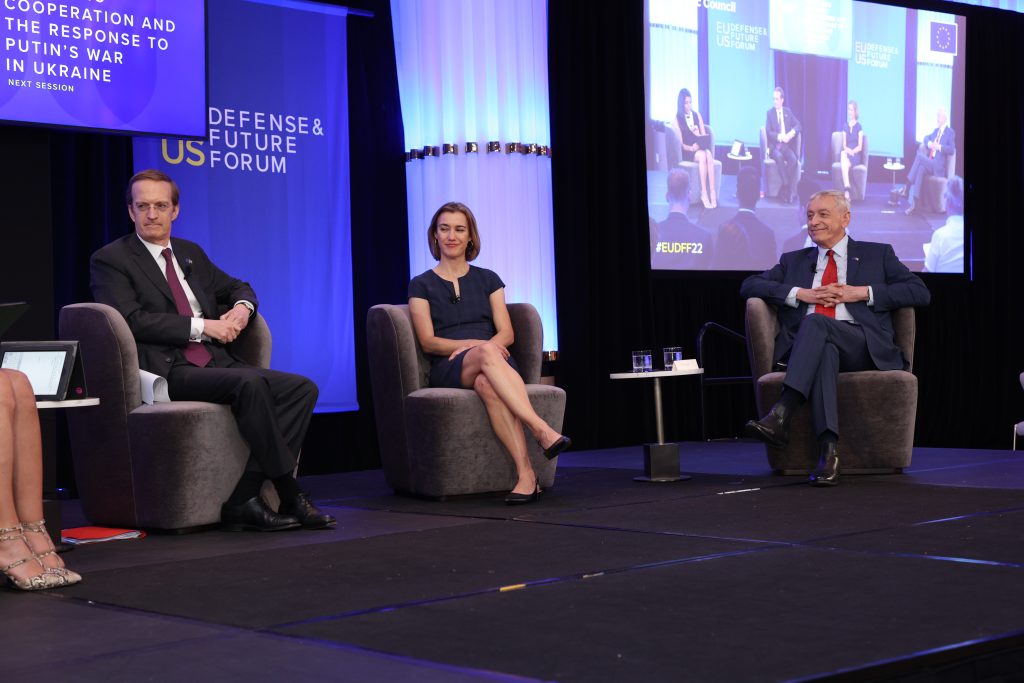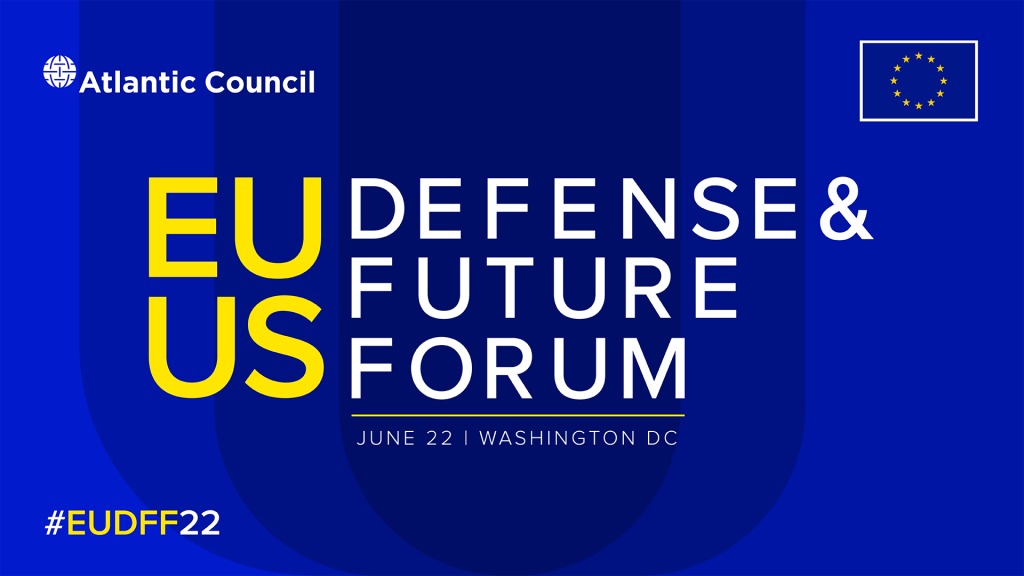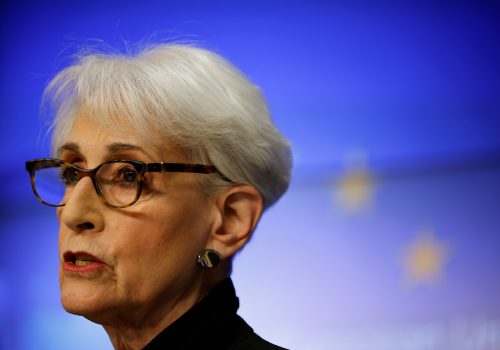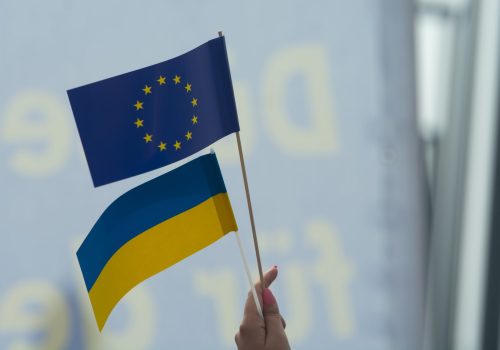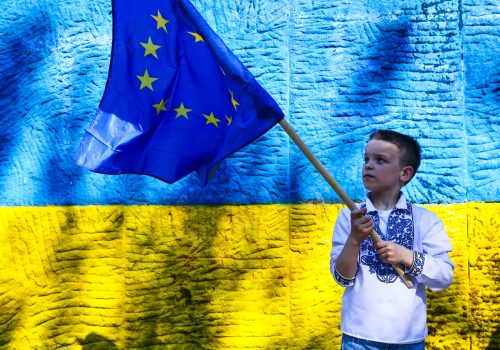Watch the full event
Russia’s attack on Ukraine has rewired the debate around transatlantic security. Whereas prior to February 24, policymakers worried about the cohesion and sense of purpose in the Western alliance, the brutal war in Ukraine has brought allies together like no event has since the end of the Cold War.
At Wednesday’s EU-US Defense & Future Forum, Charles Fries, deputy secretary general for common security and defense policy and crisis response at the European External Action Service; Jānis Kažociņš, national security adviser to the president of the Republic of Latvia; and Amanda Sloat, senior director for European affairs at the White House National Security Council discussed what has—and hasn’t—changed in the last four months.
Here are some key takeaways from the conversation:
- Fries noted how the war has created a “tectonic shift in European history, and a tectonic shift for the European security landscape.” He stressed that the recently released European Strategic Compass is a watershed event that had all member states backing a common security approach. And he pointed out how, for the first time in history, the European Union (EU) is delivering lethal weapons to an active war.
- Fries and Sloat disputed claims that there are divisions among allies on the amount and timing of delivering lethal aid to Ukraine. “The EU has been firm, robust, and quick,” Fries said. “The United States is in constant contact with the Ukrainians as the war evolves and their needs change,” Sloat added.
- On the question of strategic autonomy, Fries stressed that a desire by the EU to take more responsibility for its own security was in no way incompatible with the bloc’s desire to work closely with partners such as the United States or countries in NATO. Being a more capable partner means the partnership will be healthier. “We should not have a theological debate,” he said. “Strategic autonomy is strategic responsibility for me.”
- “Russia is the storm, China is climate change,” Kažociņš observed. While meeting the challenge from Moscow was important, he said, no one should delude themselves about the scale of the threat from Beijing in the long term—and which one should be the priority. “The more democratic countries we can bring together—together with NATO, in support of the United States, alongside Asian-Pacific democracies—the more likely we will be to deal with the challenges of the future,” he said.
- On Russia’s longer-term prospects, Kažociņš was upbeat. “I am an optimist on Russia. It will change. It has changed in the past,” largely as the result of failed foreign wars, he said. It could happen again.
Damir Marusic is a senior fellow at the Europe Center.
Watch the full event
Further reading
Wed, Jun 22, 2022
Wendy Sherman and Stefano Sannino on Ukrainian EU membership, Russian escalation, and Chinese technology
Transcript By
US Deputy Secretary of State Sherman and European External Action Service Secretary-General Sannino joined the Atlantic Council to talk about the transatlantic relationship and the roles of the European Union and United States in addressing the world's challenges.
Tue, Jun 21, 2022
What would EU candidate status mean for Ukraine?
UkraineAlert By Peter Dickinson
Ukrainians expect the country to be granted official EU candidate nation status at this week's summit of European leaders but what would this mean for Ukraine's broader ambitions for greater Euro-Atlantic integration?
Sun, Jun 19, 2022
EU candidate status for Ukraine is the ideal response to Russian aggression
UkraineAlert By Diane Francis
European Union leaders must decide this week whether to grant Ukraine official EU candidate nation status. This is a critically important moment for Ukrainians that will also shape the future direction of the entire continent.
Image: (From left) Charles Fries, deputy secretary general for common security and defense policy and crisis response at the European External Action Service; manda Sloat, senior director for European affairs at the White House National Security Council; and Jānis Kažociņš, national security adviser to the president of the Republic of Latvia appear at the Atlantic Council's EU-US Defense & Future Forum on Wednesday, June 22, 2022.
